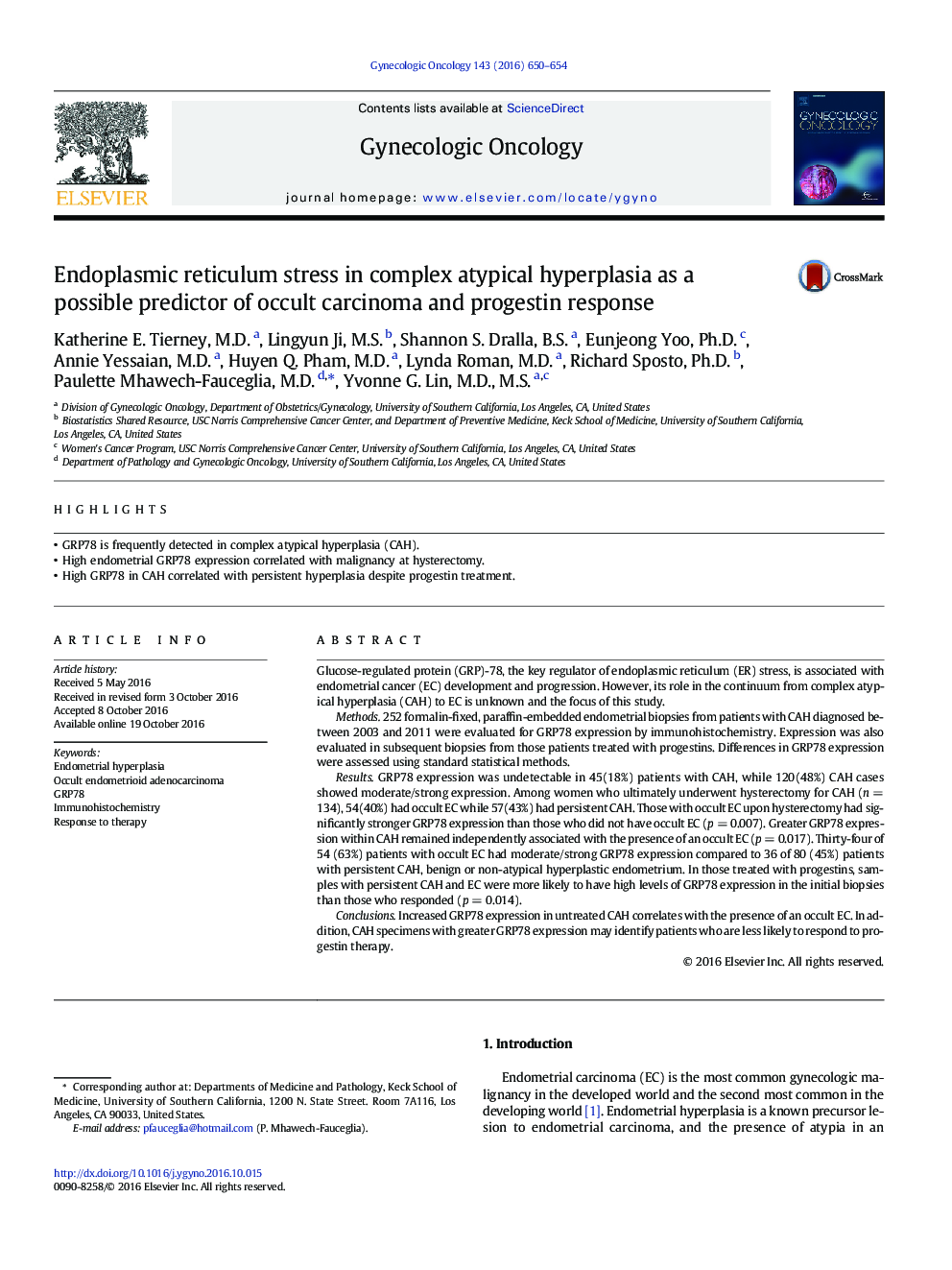| Article ID | Journal | Published Year | Pages | File Type |
|---|---|---|---|---|
| 5690708 | Gynecologic Oncology | 2016 | 5 Pages |
â¢GRP78 is frequently detected in complex atypical hyperplasia (CAH).â¢High endometrial GRP78 expression correlated with malignancy at hysterectomy.â¢High GRP78 in CAH correlated with persistent hyperplasia despite progestin treatment.
Glucose-regulated protein (GRP)-78, the key regulator of endoplasmic reticulum (ER) stress, is associated with endometrial cancer (EC) development and progression. However, its role in the continuum from complex atypical hyperplasia (CAH) to EC is unknown and the focus of this study.Methods252 formalin-fixed, paraffin-embedded endometrial biopsies from patients with CAH diagnosed between 2003 and 2011 were evaluated for GRP78 expression by immunohistochemistry. Expression was also evaluated in subsequent biopsies from those patients treated with progestins. Differences in GRP78 expression were assessed using standard statistical methods.ResultsGRP78 expression was undetectable in 45(18%) patients with CAH, while 120(48%) CAH cases showed moderate/strong expression. Among women who ultimately underwent hysterectomy for CAH (n = 134), 54(40%) had occult EC while 57(43%) had persistent CAH. Those with occult EC upon hysterectomy had significantly stronger GRP78 expression than those who did not have occult EC (p = 0.007). Greater GRP78 expression within CAH remained independently associated with the presence of an occult EC (p = 0.017). Thirty-four of 54 (63%) patients with occult EC had moderate/strong GRP78 expression compared to 36 of 80 (45%) patients with persistent CAH, benign or non-atypical hyperplastic endometrium. In those treated with progestins, samples with persistent CAH and EC were more likely to have high levels of GRP78 expression in the initial biopsies than those who responded (p = 0.014).ConclusionsIncreased GRP78 expression in untreated CAH correlates with the presence of an occult EC. In addition, CAH specimens with greater GRP78 expression may identify patients who are less likely to respond to progestin therapy.
